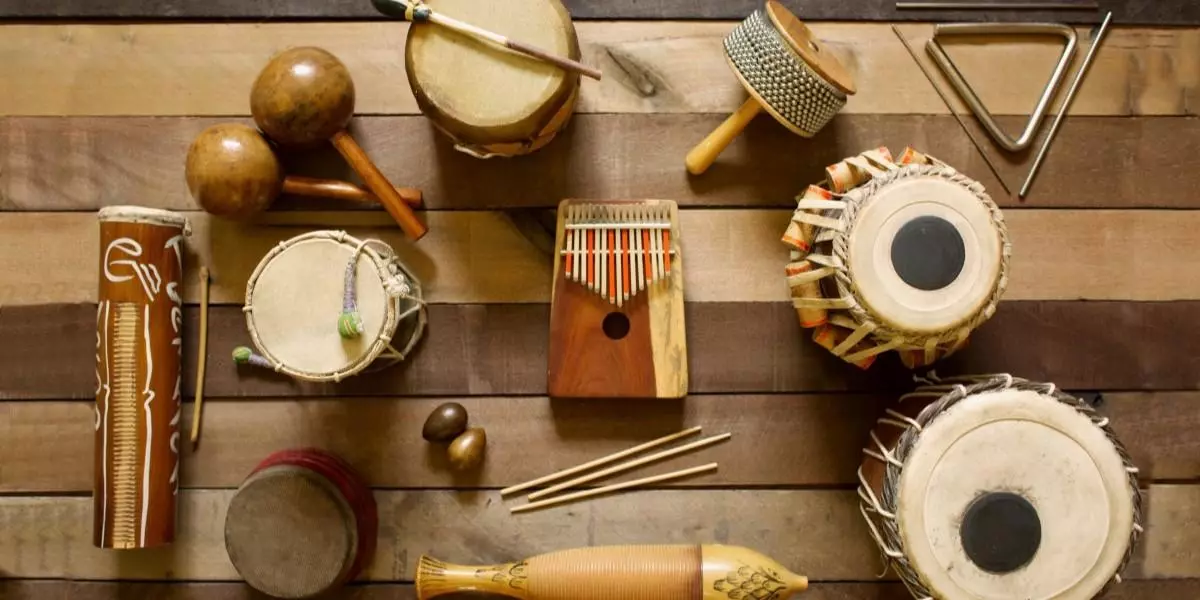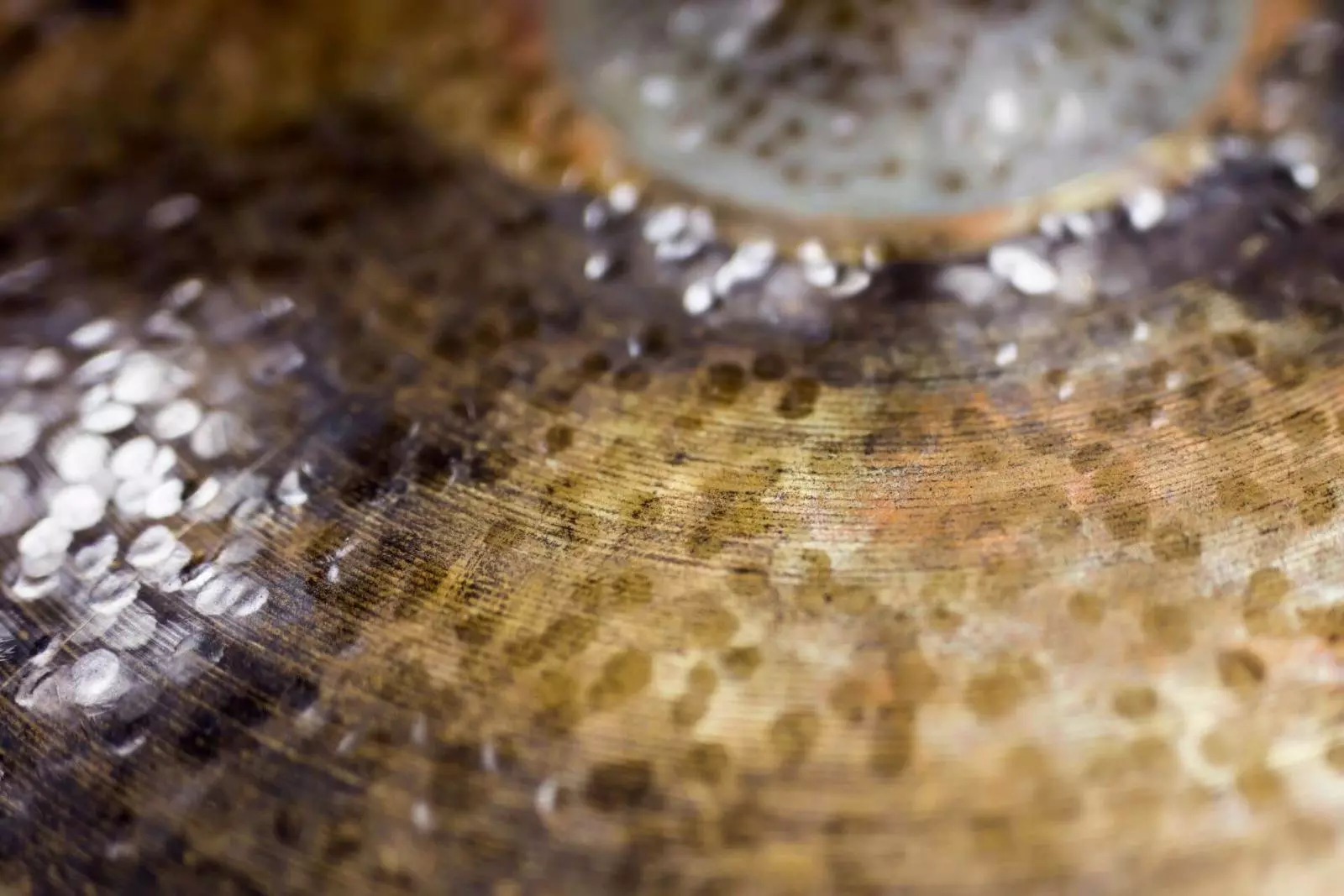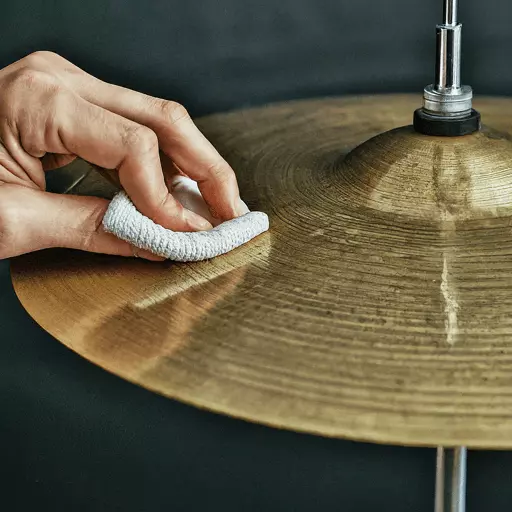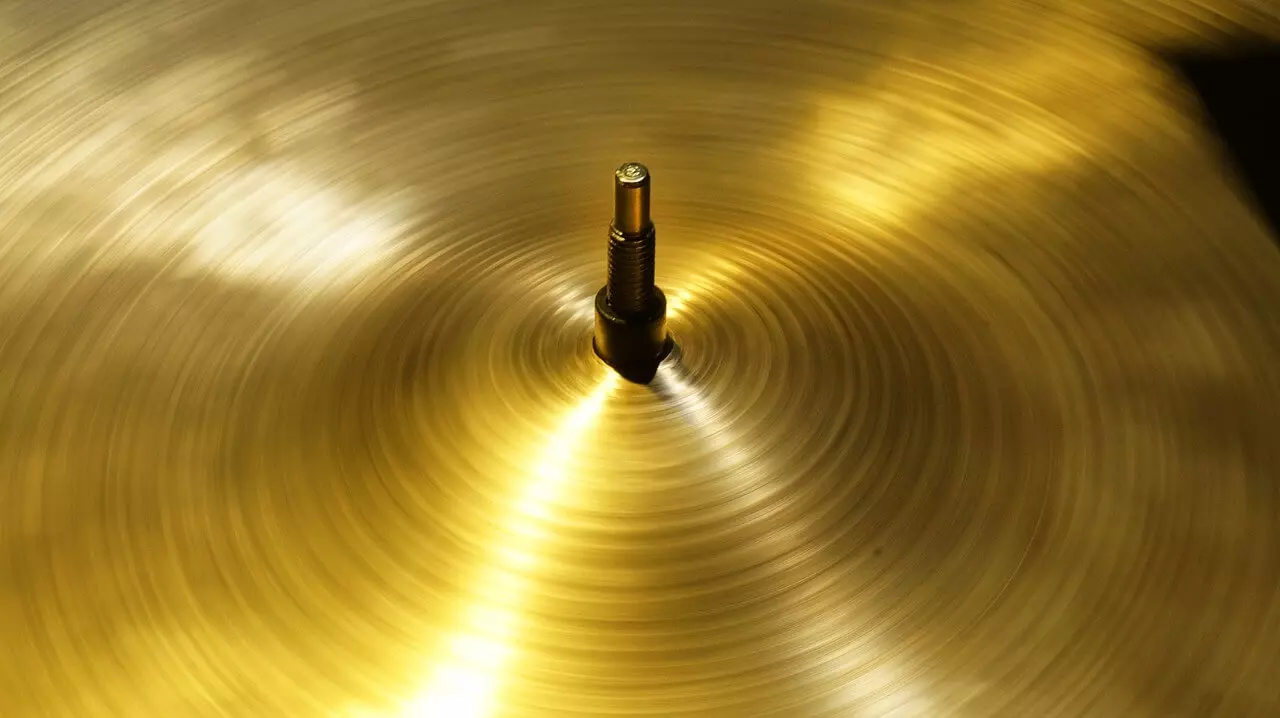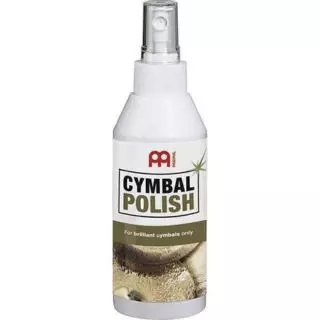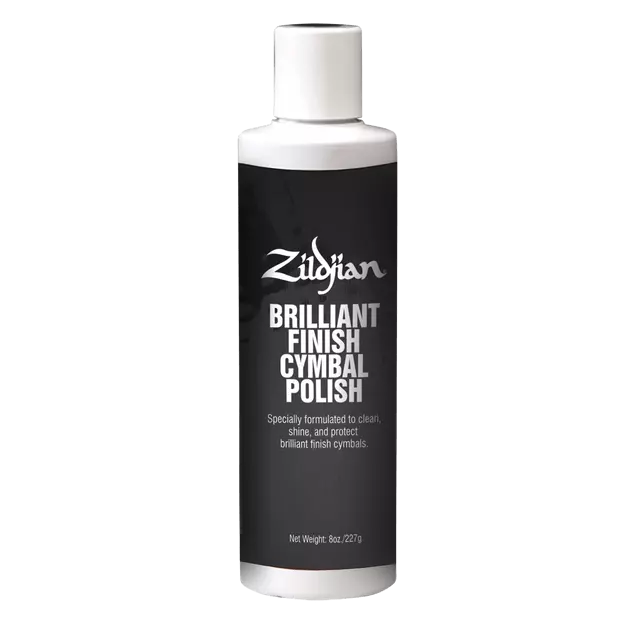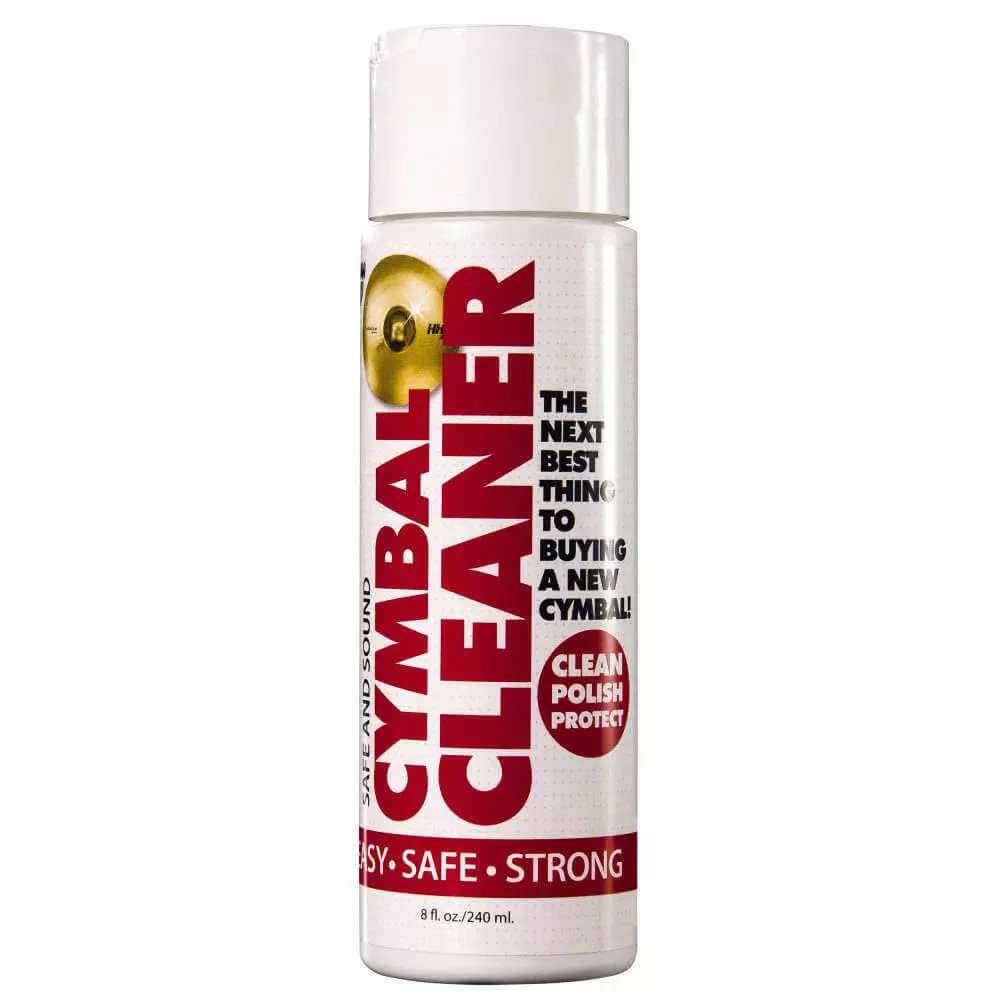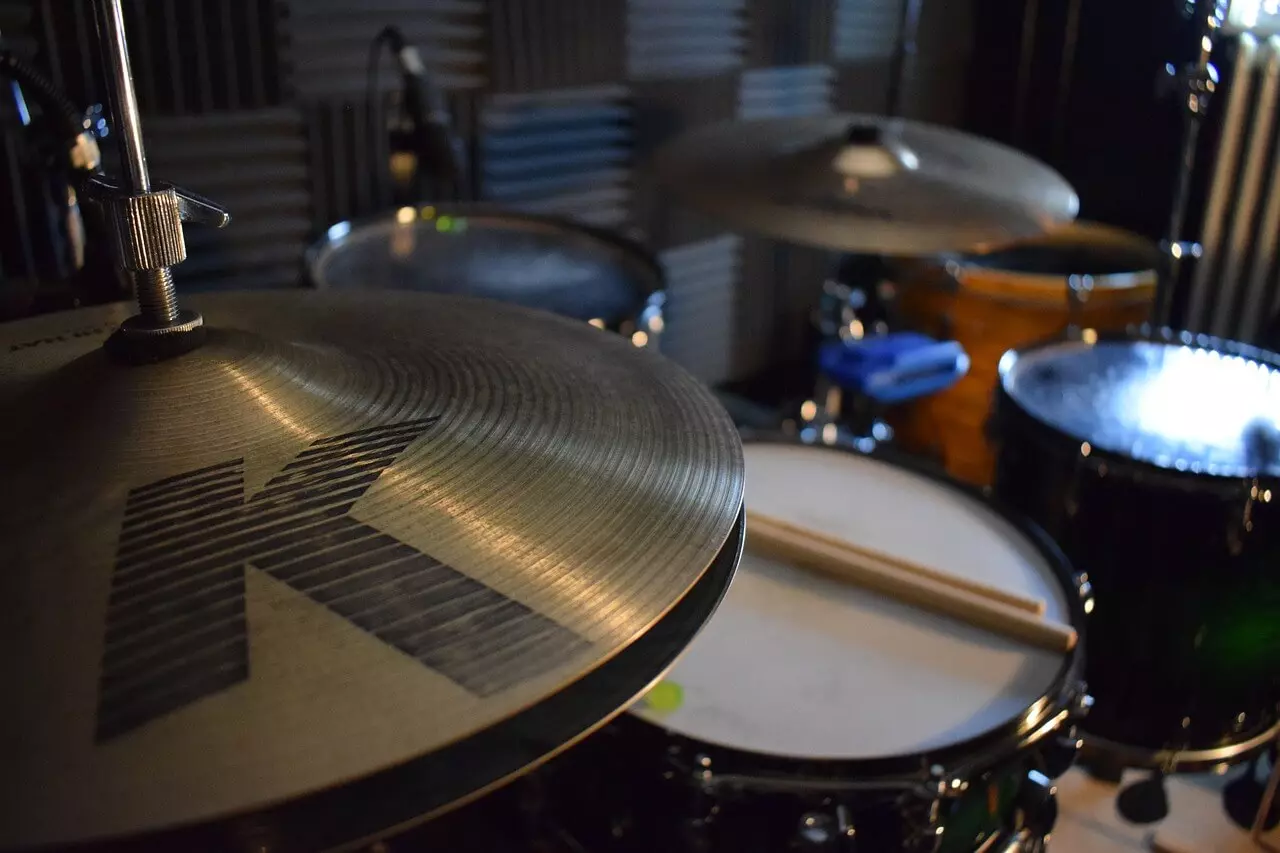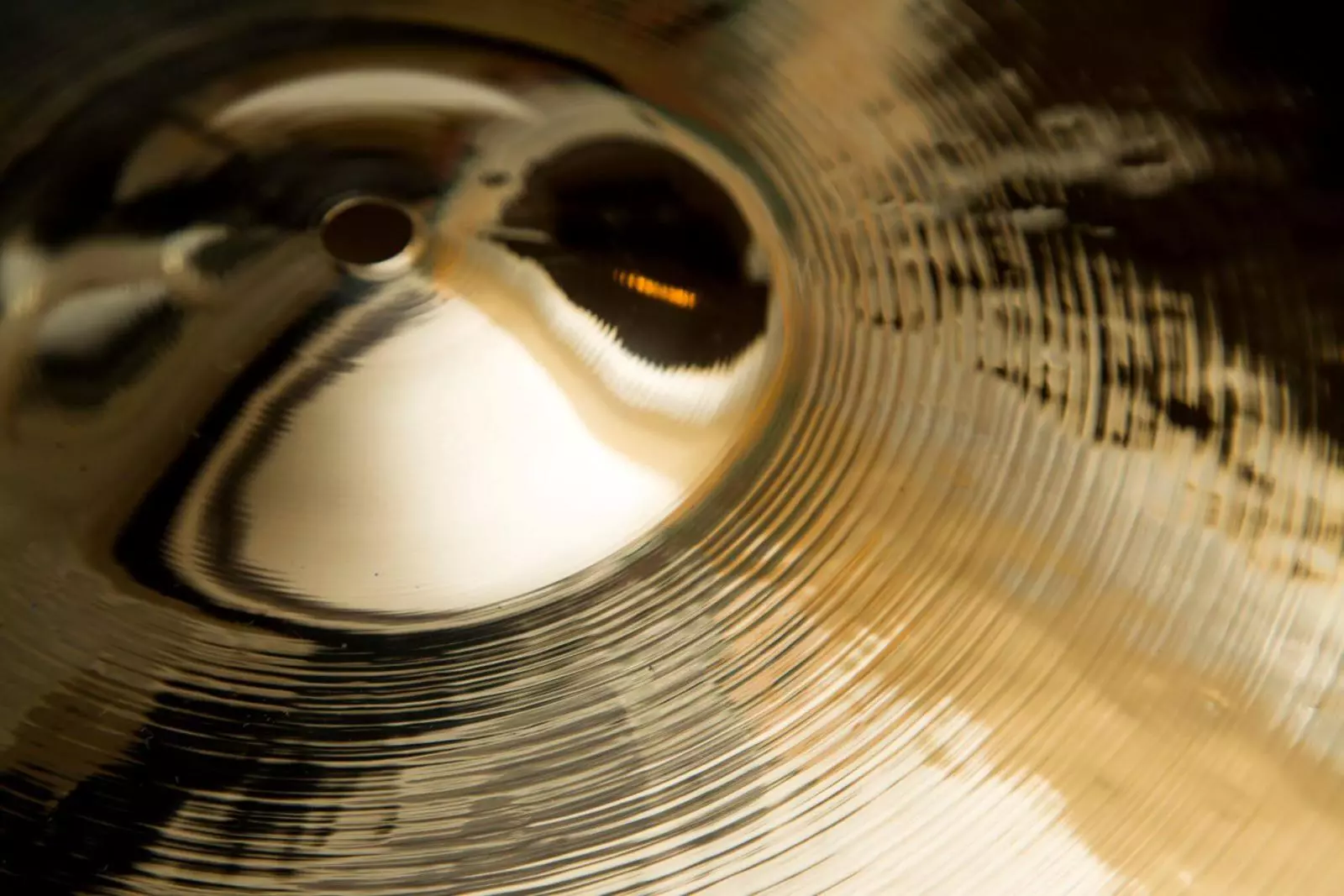A Drummers Guide to Cleaning Cymbals
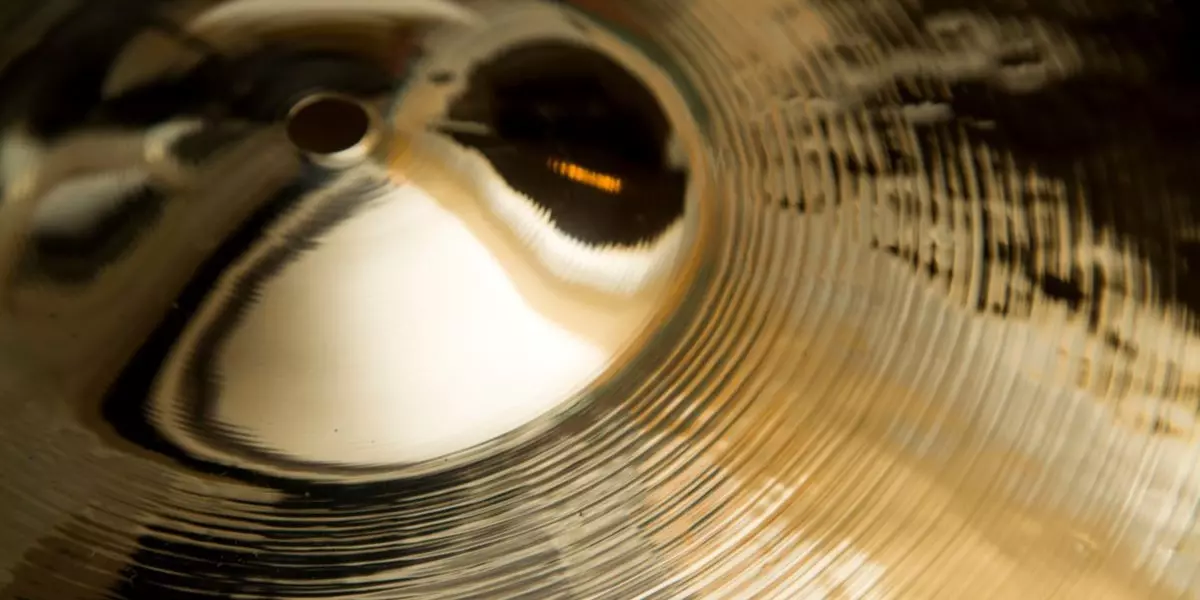
Updated on: July 11, 2024
Clean cymbals under bright lights can be the most eye-catching instruments on the stage. They also often represent the largest portion of a drummer's gear budget. Therefore, many drummers go to great lengths to keep their cymbals as shiny and new-looking as they can.
Some drummers decide to never clean their cymbals. They prefer to allow their instruments to age and patina naturally. Some jazz musicians value “Old K's” because they appreciate the sound that results from a dirty cymbal with years of copper oxide, stick residue and dirt.
A close-up of a dirty cymbal
Cleaning cymbals is a way to keep them looking and sounding the way they did when we first fell in love with them!
You can clean cymbals in one of five ways. You could choose any option you would like. Some options are more expensive whether you choose to clean it yourself or get it cleaned professionally. The 5 ways to clean your cymbals are:
- Hand washing cymbals
- Using acid-based cymbal cleaners
- Hand polishing
- Mechanical polishing
- Using power tools
We will go over each method in more detail, with steps on how to clean your cymbals and which tools you will need.
Hand Washing Cymbals with Soap and Water
Hand washing cymbals is one of the easiest ways to clean your cymbals. However, this method only works with cymbals that are new and not worn out.
Clean cymbals by soaking them in lukewarm water with a little detergent to remove dirt and corrosion. Be sure to wipe them in the direction of the “tonal ridges” [lathing], and rinse and dry them thoroughly.
Image of a cymbal being wiped down with a cloth
To keep your cymbals clean, regularly wipe dust and fingerprints after you finish using them. As long as you remove all the moisture and soap residue, hand washing with soap and water is safe for all cymbal types.
Acid-based Cymbal Cleaners
Some finger-prints and stick-marks may resist cleaning with simple soap and water. In these cases, consider using an acid-based cymbal cleaner.
Acid cleaners work because cymbals consist of bronze, an alloy of copper, tin and various trace metals. When exposed to air and moisture, bronze will form a thin coating of copper oxide on its surface. Copper oxide dulls the look of the cymbal and traps dust, dirt and the oils on its surface.
Image of a clean cymbal after being cleaned with an acid-based cleaner
When searching for "cymbal cleaning" online, drummers may recommend using household items. These hacks include lemons, ketchup, cola, and even toilet bowl cleaners.
These home remedies will work to varying degrees, but never as well as a commercially manufactured cleaner. Acidic foods also require much more rinsing to remove the unwanted protein and sugar residues they leave behind.
Acids like citric acid in lemons break down the copper oxide, allowing you to remove it and the dirt trapped inside it. If you plan on using acid-based cleaners, there are caveats worth mentioning.
4 Notes About acid-based Cymbal Cleaners
When deciding to use an acid-based cleaner for your cymbals, keep in mind these four notes:
- Most cymbal manufacturers spray a thin coat of lacquer over their instruments to prevent oxidization. Using strong acids can damage that protective coating. If you are dealing with a new cymbal, it is best to avoid harsh cleaners until soap and water are no longer effective.
- Commercial cymbal cleaners are much more effective than "home remedies". However, they are caustic, and you should only use them following the instructions on their labels.
- Acid-based cleaners are most effective on brilliant cymbals. It may be less useful on “natural lathed” and unlathed cymbals. It can also change the colours of older cymbals that have never been cleaned with acid before, especially with B8 alloys. Try your chosen product on a small area under the bell of the cymbal before applying it to the entire surface.
- Drummers who take pride in the logos on their cymbals should be cautious when using a commercial cleaner. The logos from your cymbal can easily fade or completely erase if you clean them aggressively with strong acids.
You can find acid-based Cleaners and polishes online at Long & McQuade, or your local Long & McQuade store.
Hand Polishing
If your cymbal has tough stains like heavy oxidation or ground-in dirt, acid-based cleaners might not work. They may not be strong enough to remove stubborn marks or dried tape residue. This is especially true if you are dealing with a cymbal with deep tonal grooves such as Meinl Byzance, Sabian AAs, or Zildjian As and Ks.
Polishing is the use of abrasives to physically remove a thin layer of bronze, dirt, and oxidization. Polishing a cymbal, like with strong acids, will remove the layer of protective lacquer on the cymbal. This means there is a strong possibility that it will remove the company logos as well.
A cymbal with a logo on it and a drumset in the background
The safest way to polish a cymbal is to apply a product specifically designed for the task. Use a clean towel, wiping in line with the tonal grooves of the cymbal. You may need serious elbow grease to get your desired results. If you are careful and rinse the polishing compound well, it is unlikely to damage your cymbals.
If you're afraid of damaging your cymbals with polish, the next best option is to have them cleaned by a professional.
Outsourcing/Mechanical Polishing
If your cymbals need serious polishing, there are several professional cymbal polishing services available.
Many of them employ machines specifically built to clean cymbals. The machine spins the cymbal allowing the operator to apply more aggressive polishing compounds and/or sanding blocks to remove material from the cymbal's surface.
A cymbal with a reflective finish after being polished and cleaned
Although these methods are extremely effective, they will remove all the printing from the cymbal. Some of the more established services may offer to re-apply your logos for a nominal fee.
Given the amount of material removed when polishing, there is a good chance that you will hear a noticeable change in the cymbal's pitch once it is cleaned. There may also be a slight change in the cymbal's overall complexity because of the flattening of the tonal ridges.
These services are relatively inexpensive, but require you to entrust your cymbals to another person. Be sure to research the company, read online reviews, and always take proper precautions when sending valuable instruments through the mail! If possible, visit a local ship to deliver the cymbals yourself. This helps ensure that the mail doesn't damage your cymbals.
Polishing & Sanding Power Tools
If you prefer learning through visual demonstrations, YouTube is a great source. These videos show how to use different polishing and sanding tools. Just like home remedies, not all advice is good advice. Some tips may cause more harm and ruin the traditional finish of the cymbal.
Be cautious if you consider using power tools of any kind on a naturally-lathed cymbal. That type of abrasion is likely to flatten the tonal ridges of the cymbal. This will reduce the complexity of the cymbal's sound, or even change its fundamental tone. Only use those types of techniques as a last resort!
If you prioritize appearance over sound, you should consider trading in your traditional cymbal for a brilliant finish cymbal. You can find a catalogue of brilliant cymbals on our cymbals page.
In the end, cleaning and polishing your cymbals is a personal choice. Just like the heads you select, the sticks you use, and the music you make. If you decide to clean your cymbals, start slowly and learn as you continue consistently. You may be surprised how easy it is to restore them to their original shine!


